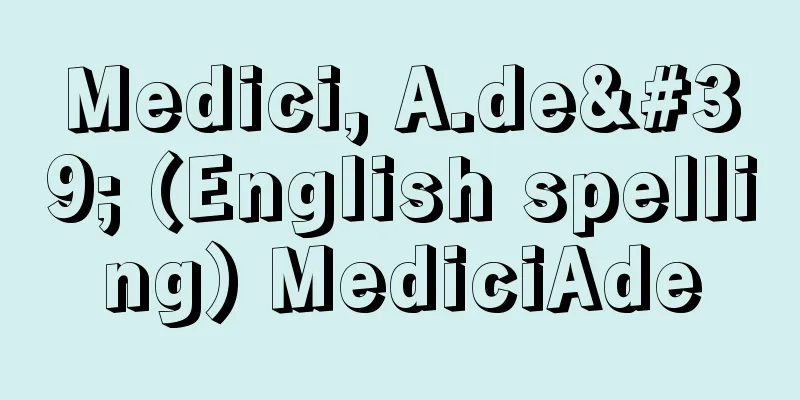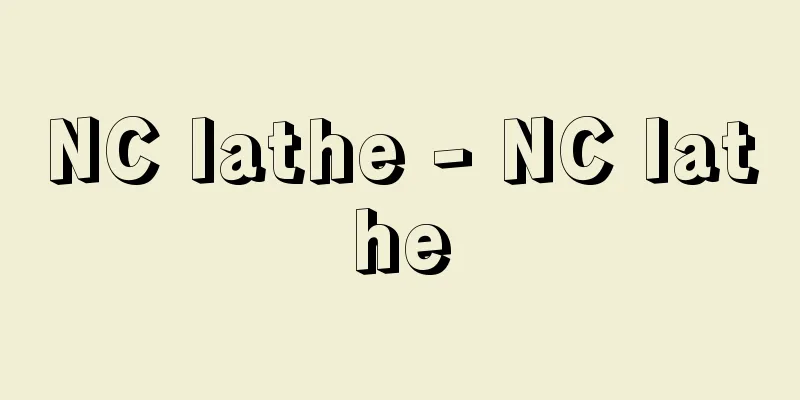Soichi Oya - Soichi Oya
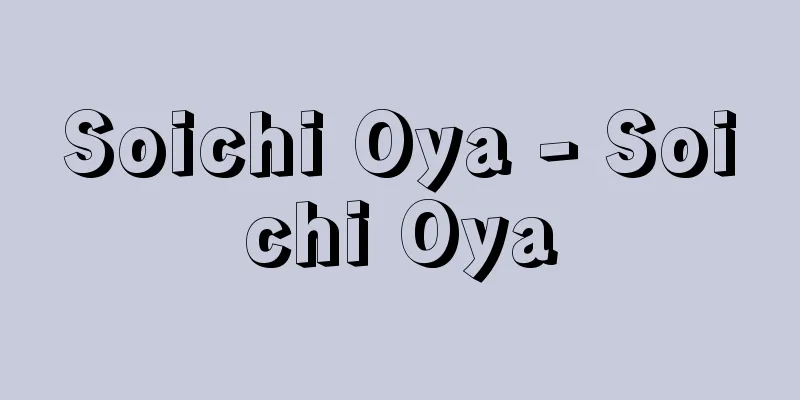
|
A critic from the Taisho and Showa periods. Born September 13, 1900. Originally from Osaka Prefecture. He leaned towards socialism from an early age, which led to him dropping out of Ibaraki Middle School. He passed the qualification exam and entered the Third High School. He admired Kawakami Hajime and Kagawa Toyohiko. He went on to study sociology at Tokyo Imperial University, but also dropped out. It was around this time that he began to distinguish himself as a literary critic. In 1925 (Taisho 14), he edited Shinchosha's Social Issues Lectures and established the so-called "Oya Translation Factory," setting the stage for group work in journalism. He changed his views after being arrested in October 1933 (Showa 8). During the Pacific War, he cooperated with the military's propaganda activities, but after the war, he wrote anonymous commentary on people under the pen name Sarutoru Tetsu, and returned to the journalism world in earnest around 1950 (Showa 25). He developed witty and colorful social commentary from a position of "strict neutrality and thorough judgment on each case." No one could match Oya's quick thinking, talent for creating popular phrases (such as "One Hundred Million Idiots," "Ekiben University," and "Horrifying Wife"), and deep understanding of the media, and in the 1950s he was literally the "triple crown king of the media." In his later years, he also devoted himself to nurturing the next generation, such as by opening the "Oya Media Academy." His main works include "Showa Kaibutsu Den" (1955), "The Recommendation of Communism" (1961), and "Honoo wa Nagareru" (1964). He received the Kikuchi Kan Prize in 1965. He passed away on November 22, 1970. After his death, his collection of books, mainly weekly magazines and magazines, was made public as the "Oya Soichi Library" (Hachimanyama, Setagaya Ward, Tokyo). [Masao Takasu] "The Complete Works of Soichi Oya, 30 volumes and 1 supplementary volume (1980-1982, Soyosha)" [References] | |Source: Shogakukan Encyclopedia Nipponica About Encyclopedia Nipponica Information | Legend |
|
大正・昭和期の評論家。明治33年9月13日生まれ。大阪府出身。早くから社会主義に傾き、そのため茨木(いばらき)中学校を中退。検定試験に合格して第三高等学校に入学。河上肇(はじめ)、賀川豊彦(とよひこ)らに私淑した。東京帝国大学社会学科へ進んだがこれも中退。そのころから文芸評論家として頭角を現す。1925年(大正14)新潮社の『社会問題講座』の編集にあたり、また、いわゆる「大宅翻訳工場」をつくるなど、ジャーナリズムの集団作業の先鞭(せんべん)をつけた。 1933年(昭和8)10月、検挙されてから転向。太平洋戦争中は軍の宣伝活動に協力したが、戦後は猿取哲(さるとるてつ)の筆名で匿名人物評論を書き、1950年(昭和25)ごろから本格的にジャーナリズム界へ復帰。「厳正中立、徹底した是々非々主義」の立場で軽妙多彩な社会評論を展開した。頭の回転の速さ、流行語(「一億総白痴化」「駅弁大学」「恐妻」など)づくりの才能、マスコミに対する深い理解力などで大宅に及ぶ者はなく、昭和30年代、文字どおり「マスコミの三冠王」として活躍した。晩年は「大宅マスコミ塾」を開くなど、後進の育成にも力を注いだ。おもな著書として『昭和怪物伝』(1955)、『共産主義のすすめ』(1961)、『炎は流れる』(1964)などがある。1965年菊池寛(きくちかん)賞受賞。昭和45年11月22日死去。彼の集めた週刊誌・雑誌を中心とした蔵書は、死後、「大宅壮一文庫」(東京都世田谷区八幡山(はちまんやま))として公開されている。 [高須正郎] 『『大宅壮一全集』全30巻・別巻1(1980~1982・蒼洋社)』 [参照項目] | |出典 小学館 日本大百科全書(ニッポニカ)日本大百科全書(ニッポニカ)について 情報 | 凡例 |
>>: Ooyaji Temple Rock Shelter Ruins - Ooyaji Temple Rock Shelter Ruins
Recommend
harp lute
...The restored instrument is the one that is pop...
Agriculture, Forestry and Fisheries Finance Corporation
It is a government financial institution fully fu...
Facial lines
…The transverse groove just before the cervical r...
Orchid (Ran) - Ran (English spelling) orchid
A general term for plants in the Orchidaceae fami...
Popular Song - Kayo
When we refer to popular music broadly, it is not...
Kan Eguchi
Novelist and critic. Born in Kojimachi, Tokyo. Dr...
Eight heads - Yatsugashira
〘Noun〙① A cultivated variety of taro. Seven to nin...
Ama - Woman Diving
Also written as ama. Fishermen who dive to collec...
camarín (English spelling) camarin
…Latin American colonial baroque is also known as...
Akadem Gorodok - Akadem Gorodok
… One of the distinctive features of the developm...
ullambana
...It is also called Ullambana Offerings or Ullam...
New Entertainment - Shin-Engei
A theater magazine. First published in March 1916 ...
Easter flower
...Therefore, even in the Christian era, anemones...
Democrat Party - Minshutou (English spelling) min zhǔ dǎng pài
In China, a group of weak political groups that di...
Aleksandr Yakovlevich Golovin
1863‐1930 A master of Russian stage design. A memb...
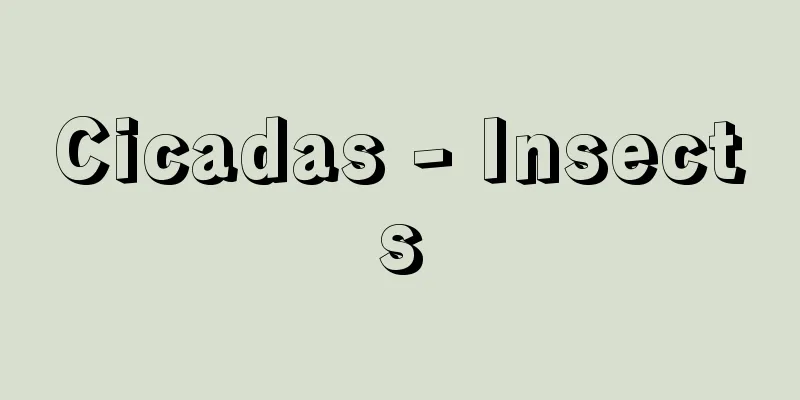



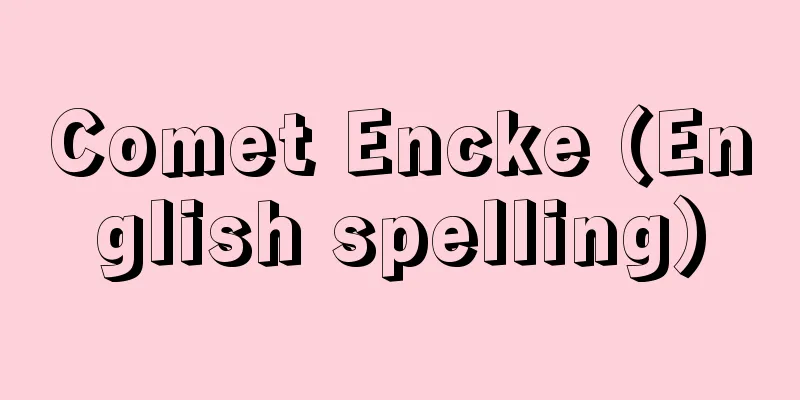

![Muikamachi [town] - Muikamachi](/upload/images/67ccf9afe2728.webp)

